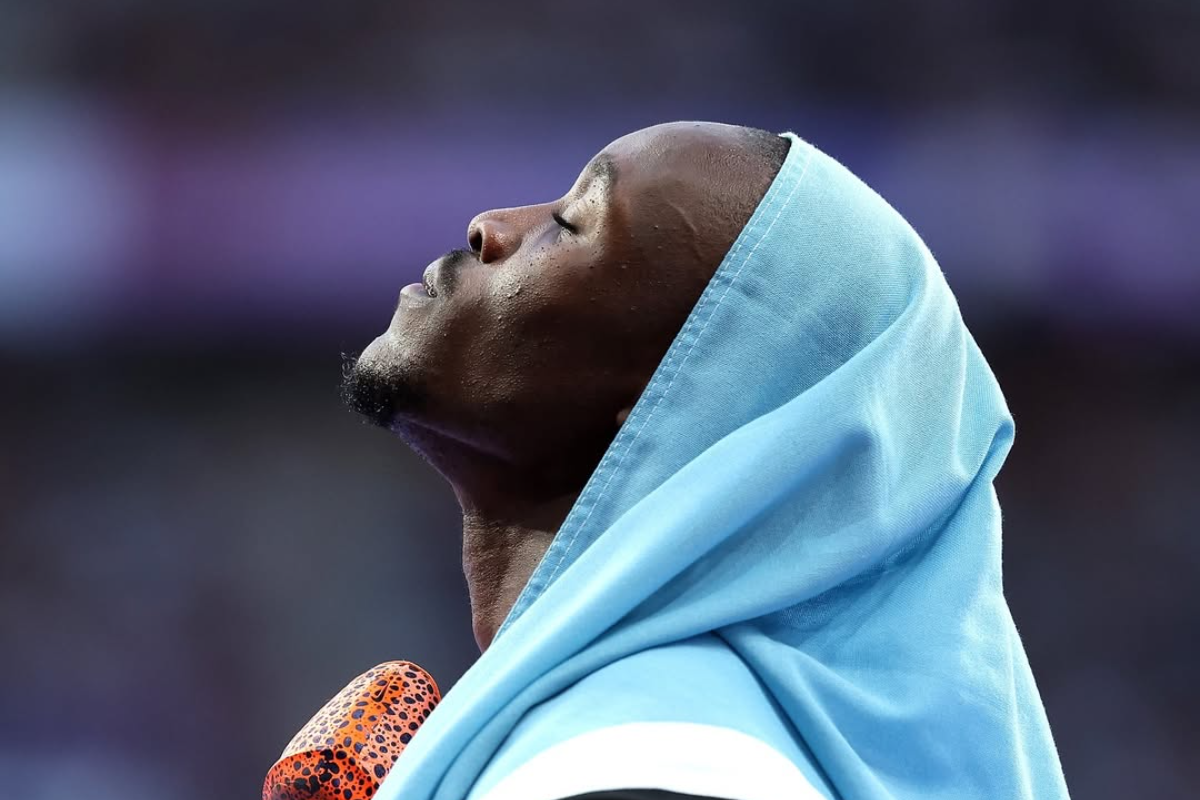
Imago
Credits: Instagram

Imago
Credits: Instagram
“When I went to Budapest, that’s where everything clicked for me. That was my biggest championship. The stadium was full of people. My mom, she’s just all smiles. The tears of joy were rolling down her cheeks. I was the happiest human being ever.” Those were the heartfelt words of a 21-year-old track and field athlete, shared in the second season of Netflix’s Sprint docuseries. At the 2023 World Athletics Championships in Budapest, the young sprinter from Botswana had the most important supporter by his side—his mother. Her joy lit up the stadium, her pride echoed in his stride. But just a year later, in what was meant to be the pinnacle of his career—the Paris Olympics—she wasn’t there.
Watch What’s Trending Now!
In May 2024, Letsile Tebogo’s world was shaken by the loss of his mother. Her death, only four months before the Olympics, threatened to derail everything. The grief was suffocating. For a young man so rooted in family, her absence wasn’t just emotional—it was spiritual. And yet, Letsile Tebogo did not crumble. In Paris, he rose. He blazed to Olympic gold in the men’s 200m, outpacing heavyweights Noah Lyles and Kenny Bednarek in an African record time of 19.46 seconds. He added a national record of 9.86 seconds in the 100m. And if that wasn’t enough, he unleashed a staggering 43.04-second split in Botswana’s 4x400m relay, stamping himself as one of the most versatile sprinters of his generation.
Back home, Botswana erupted. The government rolled out accolades. Companies like Choppies showered him with rewards. But the recognition wasn’t limited to medals and money. Something deeper had shifted—Tebogo had become a symbol of resilience, inspiration, and African excellence. So, at the Shanghai Diamond League pre-event press conference, Tebogo was asked what life was like now—as an Olympic champion, as a son carrying a mother’s legacy, and as a beacon for a continent. However, he didn’t flinch.
ADVERTISEMENT
“First of all, it opened a lot of opportunities for the whole team, not just me,” he said. “We were able to get a few new contracts, and also it has helped a lot of kids all over the globe, all over the continent to be inspired. Because they didn’t believe somebody like me could make it, or from Africa can do it, but I showed them it’s possible.” His voice was calm, but his words hit hard.

ADVERTISEMENT
Next moment, Tebogo further conceded, “I’m proud to say I have inspired a lot of kids out there, and now they’re venturing into sports, which is a good thing of the sport. The sport won’t go dry looking for athletes, because it’s more of a generation. Once we leave, there’s another group that’s coming in, so it’s something that I’m happy to look back at and just smile at.” However, World Athletics has celebrated Letsile’s inspirational side. It has made him the ambassador of its Kids’ Athletics program. The chance couldn’t have been better, as the responsibilities coming with the role have made it full circle for him.
ADVERTISEMENT
While praising the role, the Botswana native even said, “Athletics has given me so many opportunities, and I want to inspire young people to believe in themselves, dream big and enjoy the sport.” And now, he is enjoying his days both on and off the track. But what about his chances in the Grand Slam Track, the track event that promises to be extraordinary like him?
The track and field athlete maintains a difference with the Grand Slam Track
After a whirlwind 2024 track and field season, Letsile Tebogo has touched down in Shanghai, ready to lace up for the next stop on the Diamond League circuit. Last year, he was a near-constant presence on the calendar—an ironman of the sprint world—showing up, showing out, and eventually finishing as the runner-up in the men’s 200m at the Diamond League Final. Now, in 2025, the mission is clear: go one better.
ADVERTISEMENT
Top Stories
Drake Maye Reveals Shoulder Injury Update as Patriots QB Announces News On Super Bowl Availability

Dak Prescott Officially Puts Jerry Jones & Cowboys on Notice, Threatens Action on George Pickens Contract

NFL Sends Muted Warning to Bad Bunny Before Super Bowl Halftime Performance Amid ICE Controversy

Rob Gronkowski Demands Severe Punishment for Andy Reid After Bill Belichick Snub

Travis Kelce Makes Sporting Return as Teammate Gives Update on Chiefs TE’s Retirement

PGA Tour Split Into Two as Scottie Scheffler Confirms Stance on Patrick Reed’s Return

But it hasn’t been smooth sailing. At the Xiamen edition earlier this season, Tebogo had a rare off-day. In a stacked 200m field, he faded to seventh place—an uncharacteristic result that raised eyebrows and perhaps lit a fire. Therefore, on May 3, in Shanghai, the stakes are sky-high. It’s more than just points—it’s about pride, momentum, and proving that the Olympic champion is still very much the man to beat. And yet, while the Diamond League commands Tebogo’s focus, the track world is buzzing on the other side of the globe.
In Miami, the newly launched Grand Slam Track series is unfolding with all the glitz, glam, and prize money to match. Headlined by some of the sport’s flashiest names and bankrolled with a game-changing purse, it’s the league that promised to shake up track and field. But Tebogo? He’s never taken the bait.

Reuters
Paris 2024 Olympics – Athletics – Men’s 200m Final – Stade de France, Saint-Denis, France – August 08, 2024. Letsile Tebogo of Botswana celebrates with his national flag after winning gold REUTERS/Kai Pfaffenbach
Despite the buzz, the spectacle, and the millions on offer, the young star from Botswana has remained silent—and steadfast. No Grand Slam debut, no flashy press statements. His eyes are on different prizes: championship medals, African records, and legacy. Maybe it’s a calculated decision. Maybe it’s loyalty to tradition. Or maybe, for Tebogo, greatness isn’t measured in payouts, but in presence—showing up when it counts, running fast when it matters.
ADVERTISEMENT
ADVERTISEMENT
ADVERTISEMENT
ADVERTISEMENT